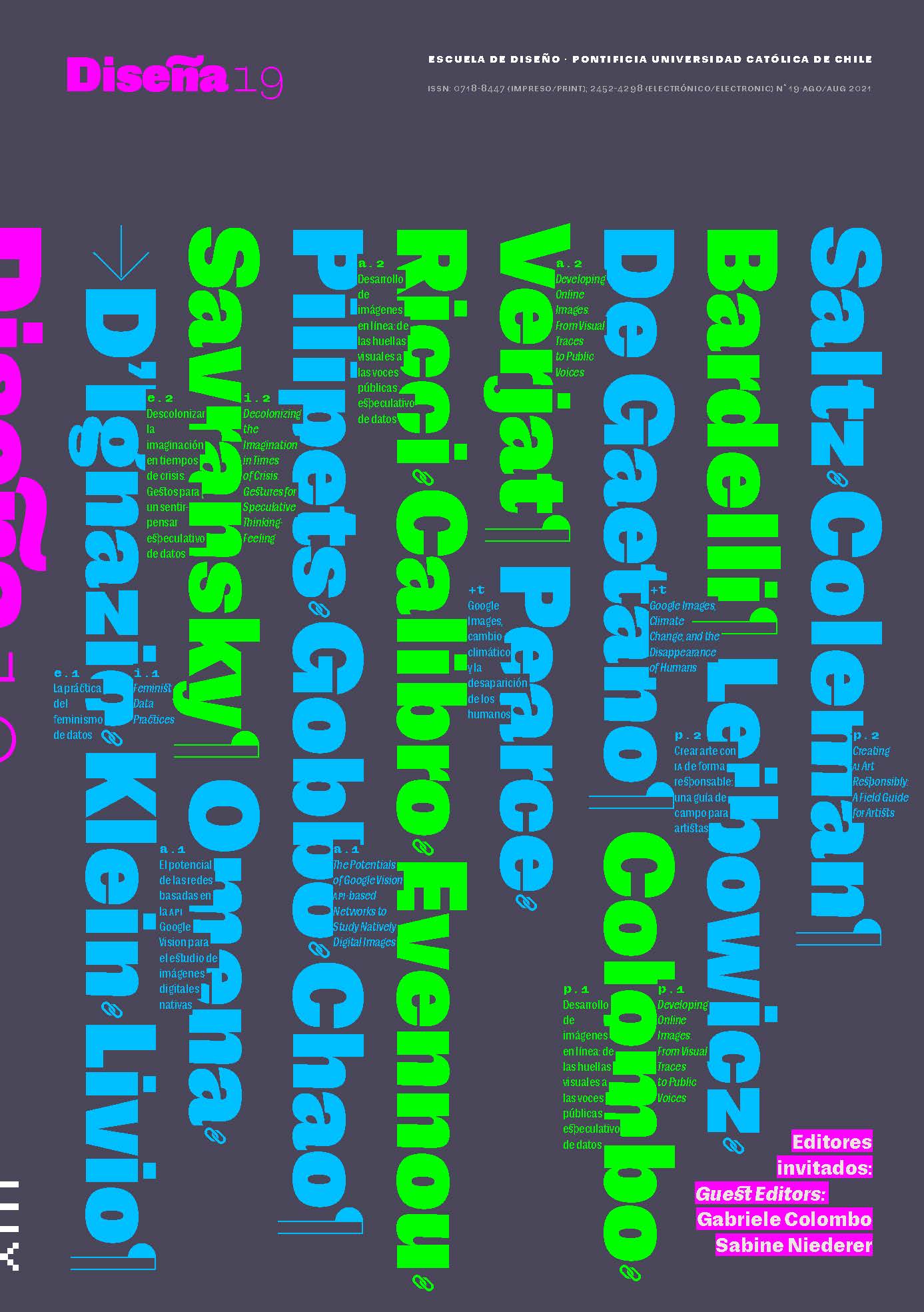Editorial: Against Subject Datafication through Anti-Oppressive Data Practices
Main Article Content
Abstract
This editorial participates in the discussion proposed by the guest editors of this issue by emphasizing that researchers who produce, manipulate, and interpret datasets will be contributing to the entrenchment of an oppressive regime of power-knowledge, if they do not begin their work by reflecting on the dynamics of domination and exploitation inherent in data, just as they will only reinforce inequalities and injustices if they do not question, by extension, the illusions of epistemic purity of datafication. Based on a brief literature review, the editorial highlights three useful strategies for transforming data into an anti-oppressive knowledge-power system: connecting data to the context in which it is produced, as stated by D’Ignazio and Klein; making data mining a people-centered process, as proposed by Leurs and Shepherd; and using data to produce embodied stories, as suggested by Leurs.
Article Details

This work is licensed under a Creative Commons Attribution-ShareAlike 4.0 International license.
COPYRIGHT NOTICE
All contents of this electronic edition are distributed under the Creative Commons license of "Attribution-ShareAlike 4.0 Internacional" (CC-BY-SA). Any total or partial reproduction of the material must mention its origin.
The rights of the published images belong to their authors, who grant to Diseña the license for its use. The management of the permits and the authorization of the publication of the images (or of any material) that contains copyright and its consequent rights of reproduction in this publication is the sole responsibility of the authors of the articles.
References
Bridges, L. E. (2021). Digital Failure: Unbecoming the “Good” Data Subject Through Entropic, Fugitive, and Queer Data. Big Data & Society, 8(1), 2053951720977882. https://doi.org/10.1177/2053951720977882
Brown, L., & Strega, S. (2015). Introduction: Transgressive Possibilities. In L. Brown & S. Strega (Eds.), Research as Resistance (2nd ed., pp. 1–17). Canadian Scholars’ Press.
D’Ignazio, C., & Klein, L. F. (2020). Data Feminism. MIT Press.
Eubanks, V. (2011). Digital Dead End: Fighting for Social Justice in the Information Age. MIT Press.
Eubanks, V. (2017). Automating Inequality: How High-Tech Tools Profile, Police, and Punish the Poor. St. Martin’s Press.
Hong, S. (2020). Technologies of Speculation: The Limits of Knowledge in a Data-Driven Society. New York University Press.
Leurs, K. (2017). Feminist Data Studies: Using Digital Methods for Ethical, Reflexive and Situated Socio-Cultural Research. Feminist Review, 115(1), 130–154. https://doi.org/10.1057/s41305-017-0043-1
Leurs, K., & Shepherd, T. (2017). Datafication & Discrimination. In M. T. Schäfer & K. van Es (Eds.), The Datafied Society: Studying Culture through Data (pp. 211–231). Amsterdam University Press.
Manovich, L. (2020). Cultural Analytics. MIT Press.
Poirier, L. (2021). Reading Datasets: Strategies for Interpreting the Politics of Data Signification. Big Data & Society, 8(2), 20539517211029320. https://doi.org/10.1177/20539517211029322
Potts, K., & Brown, L. (2015). Becoming an Anti-Oppressive Researcher. In L. Brown & S. Strega (Eds.), Research as Resistance (2nd ed., pp. 225–286). Canadian Scholars’ Press.
Rogers, R. (2013). Digital Methods. MIT Press.
van Dijck, J. (2017). Foreword. In M. T. Schäfer & K. van Es (Eds.), The Datafied Society: Studying Culture through Data (pp. 11–12). Amsterdam University Press.
van Es, K., & Schäfer, M. T. (2017). Introduction: New Brave World. In M. T. Schäfer & K. van Es (Eds.), The Datafied Society: Studying Culture through Data (pp. 13–22). Amsterdam University Press.

